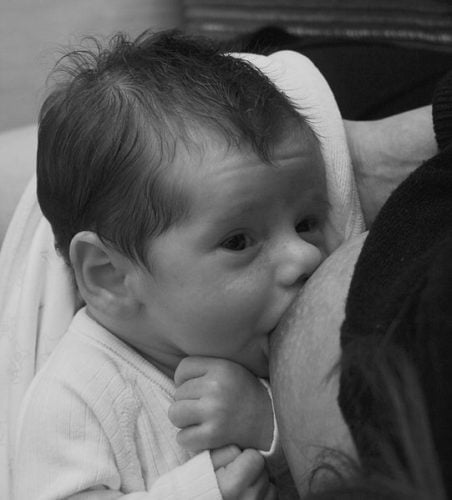There are many ways to give to others in life, improve lives, do good things, give, serve and make a difference by doing a great thing.
It’s a fantastic gift being able to offer breast milk to your baby and also share it with another baby so it can receive all of its benefits!
I imagine you have all read about breast milk and all its virtues, properties it includes. If you haven’t, I strongly suggest you read my articles on the topic to better understand donating breast milk (read Transforming Breast Milk).
Breast milk is the best product for a baby’s needs, the best transporter or nutritious elements and antibodies. Its immune function is essential, as breast milk allows for the development of intestinal flora in the digestive tube, and as such the formation of intestinal microbiota, which is the first line of defence against potential infectious agents (80% of a baby’s immune system is in the intestine). For more information, please read Baby Intestinal Immunity or Intestinal Microbiota.
In this article:
- History of breast milk banks
- What are breast banks used for?
- What criteria need to be met to become a breast milk donor?
- How do you donate breast milk?
- Transporting breast milk
- Information about breast milk
History or Breast Milk Banks
Perhaps you have already heard about breast milk banks?
My research has shown me that breast milk banks have been around in several Canadian provinces for many years, but the phenomenon is more recent in Quebec, officially started in 2014. Alberta, British Columbia and Ontario preceded Quebec, and the Atlantic provinces are currently working on developing this service, which is very important for premature babies born before 32 weeks of pregnancy. Europe and Brazil have more than 215 banks each, and the US already has 26.
In Quebec, Héma-Québec manages breast milk banks. This is logical given that the organisation already possesses the logistical capacity for this kind of service – infrastructure, staff, supplies, equipment and distribution network for blood donations. Like blood, skin and stem cells, breast milk is a human biological product. The organisation can collect donations, analyse them, pasteurise them, handle, store and distribute them. The donated milk has to be very high quality to give it to a baby. This is why it needs to be analysed for infections such as hepatitis B and C, AIDS, syphilis, and the final product is sterilised to avoid transmitting microbes to the baby who has a weak constitution. Best practices are a must.
Currently, Héma-Québec’s breast milk banks are located in the two major cities (Montreal and Quebec City) in targeted hospitals with structures to ensure they are functional. There are also regional pilot projects in Sherbrooke (Estrie) and the Saguenay to explore other ways of receiving breast milk donations through Plasmavie. Other satellite centres will soon be opened to be closer to breast milk donors and meet the demand for premature babies born in hospitals.
I know that many mothers out there would like to donate their milk but is impossible to do so in some regions, which can cause frustration. It’s important to mention that handling breast milk donations is a complicated process. The standards set by Héma-Québec for recruitment, collection, analysis, storage and transportation ensure breast milk quality and safety. Even if nothing is perfect, it’s nonetheless reassuring to know that these measures are taken in the same way as for blood donations. It’s comforting knowing a product is infection-free, right?
Continue reading with What are milk banks used for?
Photo credit : Alice Chaumier Photography


